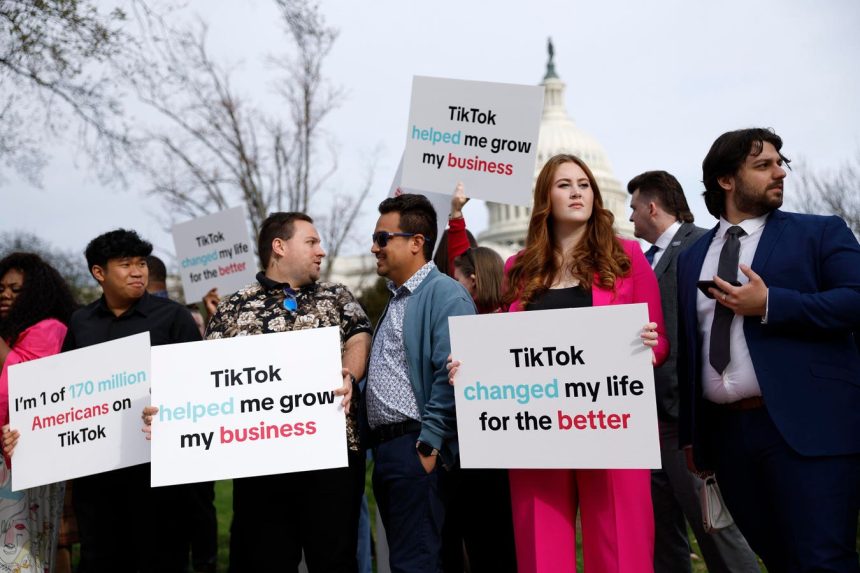The fate of TikTok in the United States hangs in the balance as the Supreme Court prepares to hear arguments regarding the app’s impending ban. The expedited timeline, with arguments scheduled for January 10th and the ban set to take effect just nine days later, underscores the urgency and significance of the case. The core issue revolves around the constitutionality of the Protecting Americans from Foreign Adversary Controlled Applications Act (PAFACA), which mandates that TikTok’s Chinese parent company, ByteDance, divest from the platform or face a total ban in the U.S. The challenge presented to the Supreme Court pits First Amendment rights against national security concerns, a delicate balancing act with far-reaching implications for both the tech industry and the millions of American TikTok users.
The crux of the government’s concern lies in TikTok’s Chinese ownership and the potential for data mining of U.S. citizens, which lawmakers fear could compromise national security. Concerns extend to the possibility of China influencing users through curated content. TikTok, however, contends that the ban infringes on Americans’ First Amendment rights, arguing that users are being unfairly denied access to a platform crucial for communication and information dissemination. This argument is somewhat ironic given China’s own restrictions on free speech. The case highlights the complex interplay between free expression, national security, and the increasing influence of technology in modern society.
Privacy advocates have also weighed in, criticizing the ban for singling out TikTok while American companies engage in similar data collection practices. They argue that all major tech platforms, with their powerful algorithms, act as gatekeepers of culture, commerce, and attention, shaping user perspectives and wielding significant influence. However, TikTok’s unique connection to the Chinese government, through a “golden share” held by the Chinese Communist Party in a ByteDance subsidiary, adds a layer of complexity not present with American tech giants. This arrangement gives the Chinese government special rights over TikTok’s operations and decision-making, raising legitimate concerns about transparency and accountability, concerns that would be unacceptable in other contexts.
The Supreme Court’s decision will have profound consequences for all stakeholders involved. If the ban is upheld, TikTok will be forced to either divest from ByteDance or cease operations in the United States, a significant blow to the platform and its user base. Conversely, if the court strikes down the ban, ByteDance can continue its operations unimpeded, though the ban on government devices will likely remain. Finding a middle ground seems improbable given the stark contrast between protecting national security and upholding First Amendment rights. The court must carefully weigh the potential risks of data sharing and foreign influence against the importance of free expression and access to information.
The outcome will significantly impact the digital landscape. If TikTok is banned, competing platforms like Google and Safari stand to gain, while TikTok creators and users who rely on the platform for income and communication will lose a vital tool. The case also has broader implications for the regulation of foreign-owned tech companies operating in the U.S., setting a precedent for future disputes involving national security and free speech. The decision will undoubtedly influence how the U.S. navigates the increasingly complex relationship between technology, national security, and individual liberties.
The Supreme Court’s impending ruling on TikTok’s fate will be a watershed moment, not just for the platform itself, but also for the future of online communication and the balance between national security and individual freedoms. The decision will have a ripple effect across the tech industry, impacting how foreign-owned companies operate within the U.S. and shaping the legal landscape surrounding data privacy, free speech, and national security. Ultimately, the court’s decision will reflect a broader societal reckoning with the growing power of technology and its implications for democracy, individual liberties, and the global order.



